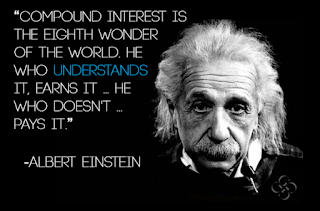The Wealthy:
Why wealth management is important?
Wealth management is important for several reasons:
- Financial Security: Wealth management helps individuals and families secure their financial future. By creating a well-thought-out plan, you can ensure that you have the resources to cover your needs, both now and in retirement. This security can alleviate stress and provide peace of mind.
- Goal Achievement: Wealth management helps you identify and work towards your financial goals, whether they are short-term (buying a home, funding education) or long-term (retirement, generational wealth). It provides a roadmap for achieving these objectives.
- Risk Management: Wealth management involves assessing and managing financial risks. This includes diversifying investments to reduce the impact of market volatility and ensuring that you have adequate insurance coverage to protect against unforeseen events.
- Tax Efficiency: Effective wealth management strategies can help you minimize your tax liabilities. This may involve taking advantage of tax-advantaged accounts, tax-efficient investment strategies, and estate planning to pass on assets tax-efficiently.
- Wealth Preservation: Wealth management focuses on preserving and growing your wealth over time. Professionals in this field can help you make informed investment decisions, allocate assets appropriately, and adapt your strategy as your financial situation changes.
- Inflation Hedge: Wealth management strategies often include investments that provide a hedge against inflation. As the cost of living rises over time, your investments can help your wealth keep pace with or outpace inflation.
- Estate Planning: Wealth management includes estate planning, which involves creating a plan for how your assets will be distributed after your passing. Proper estate planning can minimize estate taxes and ensure your assets are passed on according to your wishes.
- Financial Education: Engaging with wealth management professionals can be an educational experience. They can help you better understand your finances, investment options, and the broader financial landscape, empowering you to make informed decisions.
- Time and Expertise: Managing wealth effectively can be complex and time-consuming. Wealth managers have the expertise and experience to navigate financial markets, investment options, and tax regulations, allowing you to focus on other aspects of your life.
- Peace of Mind: Knowing that you have a well-structured wealth management plan in place can provide peace of mind. It can reduce financial stress and allow you to enjoy life without constantly worrying about money matters.
What is wealth creation?
Wealth management is a financial services process that involves creating and implementing a plan to help individuals, families, or businesses manage their financial affairs and achieve their financial goals. Wealth management typically includes a range of services, such as investment management, financial planning, tax planning and preparation, estate planning, and risk management. Wealth management professionals often work with clients to identify their financial goals, assess their current financial situation, and develop a plan to achieve those goals. They may also provide advice on a variety of financial matters, such as saving for retirement, paying for education, or managing debt. Wealth management can be a useful tool for people who want to make the most of their financial resources and achieve long-term financial stability.
What is wealth creation?
Wealth creation refers to the process of building and accumulating assets, financial resources, and value over time. It involves increasing one’s net worth by generating income, making prudent financial decisions, and managing resources effectively. Wealth creation can take various forms and typically involves:
- Income Generation: Earning money through employment, investments, business ventures, or other sources is a fundamental aspect of wealth creation. Increasing your income, whether through salary raises, business profits, or investment returns, contributes to wealth growth.
- Savings and Investments: Saving a portion of your income and investing it wisely is a key strategy for wealth creation. Investments in stocks, bonds, real estate, and other assets have the potential to appreciate in value and generate income over time.
- Asset Accumulation: Acquiring valuable assets, such as real estate, stocks, businesses, and collectibles, can build wealth. These assets can appreciate in value and provide ongoing income or capital gains.
- Debt Management: Managing debt effectively is essential for wealth creation. While some debt, like mortgages or business loans, can be used strategically to acquire assets, high-interest consumer debt can hinder wealth growth.
- Financial Planning: Creating a well-structured financial plan that includes budgeting, saving, investing, and retirement planning is crucial for wealth creation. A plan helps you set and achieve financial goals systematically.
- Entrepreneurship: Starting and growing a successful business can be a powerful wealth creation strategy. Entrepreneurs have the potential to create significant value through their enterprises.
- Education and Skill Development: Investing in education and skill development can lead to higher earning potential and career advancement, which, in turn, contributes to wealth creation.
- Diversification: Diversifying your investments and income streams can reduce risk and enhance wealth creation. Spreading your resources across various assets and industries can help safeguard against economic downturns.
- Long-Term Perspective: Wealth creation often takes time. Maintaining a long-term perspective and resisting the temptation for short-term gains can be a key factor in building substantial wealth.
- Financial Discipline: Practicing financial discipline, including living within your means, avoiding impulsive spending, and consistently saving and investing, is vital for wealth creation.
Wealth creation is a dynamic and ongoing process that varies from person to person based on individual goals, financial circumstances, and strategies. It ultimately aims to improve one’s financial well-being and create a lasting legacy for oneself and future generations.
Tips for long-term wealth creation?
Building long-term wealth requires a combination of financial discipline, strategic planning, and smart decision-making. Here are some tips to help you create and preserve wealth over the long term:
- Set Clear Financial Goals: Define your financial objectives, both short-term and long-term. Having specific goals will give you direction and motivation for wealth creation.
- Create a Budget: Establish a budget that outlines your income, expenses, and savings goals. Stick to your budget to ensure you’re consistently saving and investing for the future.
- Save and Invest Regularly: Make saving and investing a habit. Automate your contributions to savings and investment accounts, ensuring that a portion of your income is consistently earmarked for wealth creation.
- Diversify Your Investments: Spread your investments across a variety of asset classes (stocks, bonds, real estate, etc.) to reduce risk. Diversification can help protect your wealth during market fluctuations.
- Avoid Debt: Minimize high-interest debt, such as credit card debt, and use debt strategically for investments that have the potential to generate a higher return than the cost of borrowing.
- Emergency Fund: Maintain an emergency fund with enough savings to cover at least three to six months’ worth of living expenses. This fund acts as a financial safety net in case of unexpected expenses or job loss.
- Invest for the Long Term: Focus on long-term investments and avoid frequent buying and selling. Time in the market is a powerful wealth-building factor, and long-term investments often yield better results than short-term speculation.
- Take Advantage of Retirement Accounts: Contribute to retirement accounts like 401(k)s and IRAs, especially if your employer offers a matching contribution. These accounts provide tax advantages and help you save for retirement.
- Educate Yourself: Continuously educate yourself about personal finance and investment strategies. The more you know, the better equipped you’ll be to make informed decisions.
- Tax Efficiency: Be mindful of the tax implications of your financial decisions. Seek tax-efficient investment strategies and take advantage of tax-advantaged accounts.
- Estate Planning: Create a comprehensive estate plan that includes wills, trusts, and other legal documents to protect your assets and ensure they are passed on according to your wishes.
- Regularly Review and Adjust: Periodically review your financial plan and investments to ensure they align with your goals. Adjust your strategy as your circumstances change or as you approach retirement.
- Stay Disciplined: Avoid making impulsive financial decisions based on emotions or short-term market fluctuations. Stay disciplined and stick to your long-term plan.
- Seek Professional Advice: Consider working with financial advisors, accountants, or estate planning attorneys to help you make informed decisions and optimize your wealth strategy.
- Be Patient: Building significant wealth takes time. Be patient, stay committed to your goals, and trust in the power of compounding to grow your wealth over the years.
Remember that wealth creation is a journey, and there may be ups and downs along the way. Stay focused on your long-term objectives, and with persistence and discipline, you can steadily build and preserve wealth over time.
Here are some frequently asked questions (FAQs) about wealth creation, along with concise answers:
-
What is wealth creation?
Wealth creation refers to the process of building and accumulating assets, financial resources, and value over time to improve one’s financial well-being.
-
Why is wealth creation important?
Wealth creation is essential for achieving financial security, meeting long-term goals, and providing a comfortable lifestyle in the future.
-
How can I start creating wealth?
Start by setting clear financial goals, creating a budget, saving and investing regularly, and minimizing high-interest debt.
-
Is investing necessary for wealth creation?
Investing is often a crucial component of wealth creation as it allows your money to grow over time and potentially outpace inflation. However, it’s important to invest wisely and according to your risk tolerance.
-
What is the difference between saving and investing for wealth creation?
Saving typically involves putting money in low-risk, easily accessible accounts, while investing involves putting money into assets like stocks, bonds, or real estate that have the potential for higher returns but come with greater risk.
-
How can I diversify my investments for wealth creation?
Diversification involves spreading your investments across different asset classes (e.g., stocks, bonds, real estate) to reduce risk. You can achieve this through mutual funds, exchange-traded funds (ETFs), or a well-balanced portfolio.
-
Should I pay off debt or invest for wealth creation?
It depends on the interest rates on your debt. High-interest debt should typically be paid off first, but it’s often advisable to simultaneously save and invest for wealth creation while managing lower-interest debt.
-
What role does budgeting play in wealth creation?
Budgeting helps you track expenses, identify areas where you can save, and allocate funds toward savings and investments, making it a fundamental aspect of wealth creation.
- How can I protect my wealth from unexpected events?Maintaining an emergency fund, having adequate insurance coverage, and engaging in proper estate planning can help protect your wealth in the face of unexpected events.
- Is wealth creation only about money?
- While wealth creation primarily focuses on financial resources, it can also encompass non-monetary assets, such as knowledge, skills, and relationships, which can contribute to your overall well-being and success.
-
How long does it take to create significant wealth?
The time required to create significant wealth varies widely based on factors like your income, expenses, investment returns, and goals. It often takes years or even decades of consistent effort.
-
Should I seek professional advice for wealth creation?
Seeking advice from financial professionals, such as financial advisors or accountants, can be beneficial for creating a comprehensive wealth strategy and optimizing your financial decisions.
-
Is wealth creation only for the wealthy?
Wealth creation is not limited to the wealthy; anyone can start building wealth by setting financial goals, budgeting, and making informed financial decisions.
-
Can I start wealth creation with a small income?
Yes, wealth creation is possible regardless of your income level. Starting early and consistently saving and investing a portion of your income is key to building wealth over time.
-
What role does risk tolerance play in wealth creation?
Your risk tolerance determines your comfort level with investment risk. It’s important to choose investments that align with your risk tolerance to avoid making impulsive decisions during market fluctuations.






I must admit, this post is pretty good. In fact, it’s one of the best I’ve seen in a long time.
I’m glad I came across this page. I was looking for something else when I stumbled on it. Nice work.